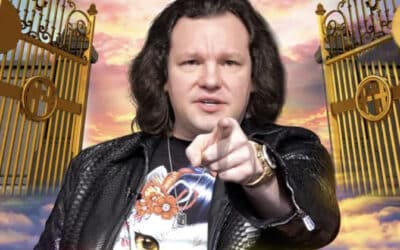“There is …no human right, natural or Constitutional, that we have not seen nullified by the United States Government,” wrote the immortal Albert Jay Nock in his essay Our Enemy, the State. “Of all the crimes that are committed for gain or revenge, there is not one that we have not seen it commit – murder, mayhem, arson, robbery, fraud, criminal collusion and connivance.”
The State “punishes private theft, but itself lays unscrupulous hands on anything it wants, whether the property of citizen or alien,” he elaborated — and this process of monopolizing crime is made much simpler when the government arrogates to itself the supposed right to punish vice as if it were crime. Drug prohibition has been an enormous blessing to predatory criminals is both the private underworld and the political “overworld.”
Over the past three years, more than 700 drug convictions in Philadelphia have been overturned following the conviction of former Philadelphia PD Officer Jeffrey Walker, who was arrested in an FBI sting operation after planting drugs inside a Philadelphia resident’s car and then breaking into the victim’s home to steal $15,000 in cash. Walker was charged with attempted robbery and carrying a firearm in the commission of a violent felony, and sentenced to three and a half years in prison.
If he serves his entire sentence – which is unlikely – Walker will be incarcerated for about a year and a half longer than LeRoy Gonzalez, who was a victim of what has proven to be standard operating procedure for some elements of the Philadelphia PD. In May 2009, Gonzalez was assaulted by Officer Thomas LiCardello, who dragged him from his car, threw him to the ground, and handcuffed him. LiCiardello, along with officers Michael Spicer, Sean O’Malley, and Perry Betts, planted drug evidence near the victim, and charged him with narcotics offenses. Gonzalez was eventually compelled to accept a deal in which he pleaded guilty to a single charge of drug possession with intent to deliver.
It wasn’t until after he was released from prison that Walker, as part of a plea bargain of his own, implicated the officers who had framed Gonzalez for planting “false evidence on suspects, in their homes and other areas,” carrying out “police raids without probable cause and based on false information,” and falsifying police reports. Gonzalez has filed a federal civil rights suit against the City of Philadelphia.
Where prohibition of vice is made government policy, police corruption is inescapable. As Professor Alfred W. McCoy of the University of Wisconsin-Madison observes, through drug prohibition, police act as “an informal regulator, controlling the volume of vice trading and setting the level of syndication”; this results in the creation of “powerful syndicates and a high volume of illicit activity.”
Many, perhaps most, of the victims preyed upon by Officer Walker and his depraved comrades were probably inconsequential drug retailers whose occupation wouldn’t exist if drug consumption were decriminalized. The same isn’t true of criminally minded men who find employment as agents of State-consecrated violence, who do the bidding of people who are addicted to the deadliest of all vices — the lust for power over others, which is the wellspring of all criminal behavior.




























